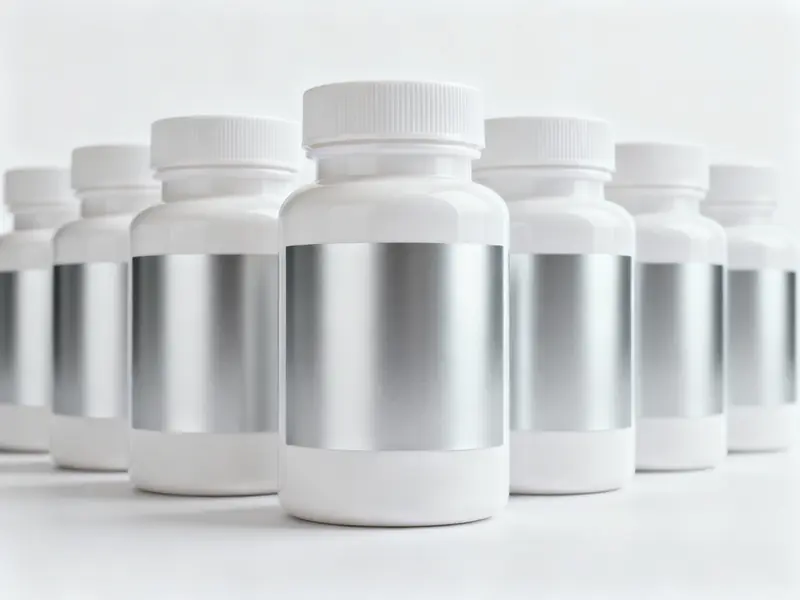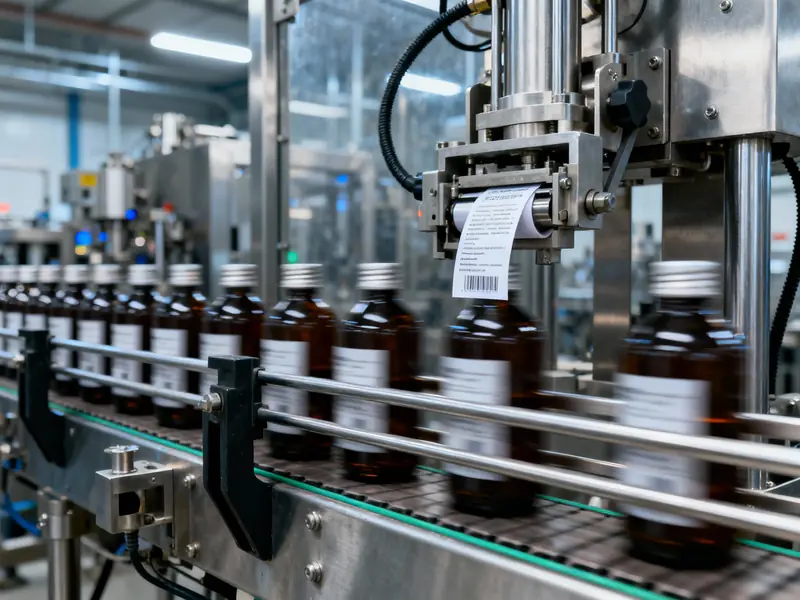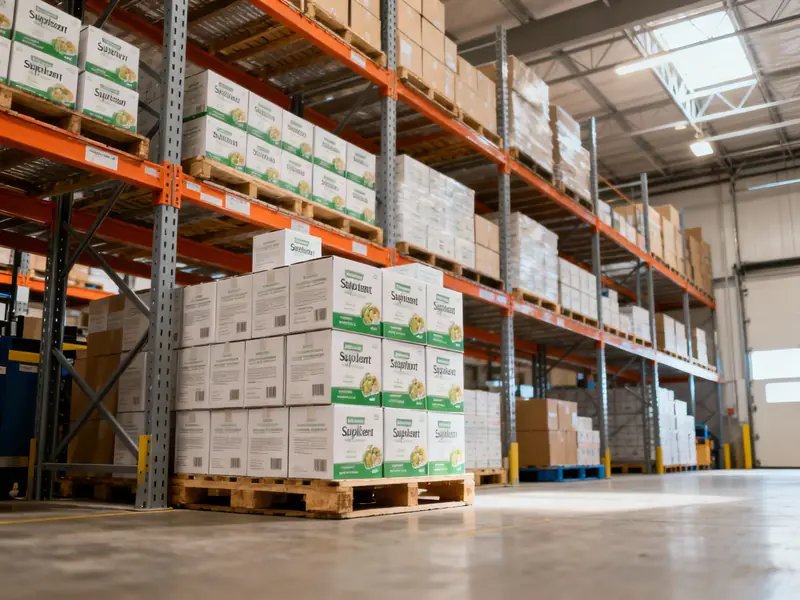Private Label vs White Label: What's the Difference?

If you’ve spent any time researching supplement manufacturing, you’ve probably noticed something confusing: some companies use “private label” and “white label” interchangeably, while others insist they’re completely different things. Talk to three manufacturers and you’ll get three different definitions.
So what’s the real difference? And more importantly, which one should you choose for your supplement brand?
Let’s clear up the confusion and help you make the right decision based on your budget, timeline, and business goals. We’ve helped launch over 20 supplement brands, and we’ve seen firsthand what works (and what doesn’t).
The Terminology Problem
Here’s the truth: the supplement industry doesn’t have standardized definitions for these terms. Some manufacturers use them interchangeably. Others draw clear lines between them. This isn’t helpful when you’re trying to launch a business.
At Nutricraft and most professional manufacturers, here’s how we define them:
White Label means taking an existing, pre-formulated product and putting your brand name on it. Think of it like buying a house that’s already built. You can paint the walls and choose the furniture (your packaging and branding), but the structure is already there.
Private Label means creating a custom product specifically for your brand. You control the formulation, ingredients, dosages, and everything else. It’s like building a house from scratch based on your specific needs.
There’s also a middle ground we call semi-custom or modified stock formulas, where you start with a proven formula and tweak it to make it yours. More on that later.
White Label: The Fast Track to Market
White label is the quickest, most affordable way to launch a supplement brand. You’re essentially licensing an existing formula and putting your brand on it.
What You Actually Get
When you choose white label, the manufacturer already has the formula developed, tested, and ready to produce. They’ve worked out the stability, dosage, ingredient sourcing, and manufacturing process. You show up with your brand name and packaging design, and they handle the rest.
Most manufacturers offer catalogs of 50-200 stock formulas across popular categories:
- Multivitamins and single vitamins
- Sports nutrition (protein, pre-workout, BCAAs)
- Weight management (garcinia, green coffee, CLA)
- Beauty and wellness (collagen, biotin, hair vitamins)
- Immune support (vitamin C + zinc, elderberry, mushrooms)
- General health (omega-3, probiotics, turmeric)
At Nutricraft, we maintain 100+ stock formulas across these categories. Note: White label products are designed for the US market only—for Canada, you’ll need private label or semi-custom formulations due to NPN requirements (more on this later).

Real Cost Breakdown
Let’s talk numbers. For a white label product with 1,000 units (our minimum order quantity), you’re typically looking at:
| Cost Component | Price Range | Notes |
|---|---|---|
| Product Manufacturing | $3,000-6,000 | Depends on formula complexity and format |
| Packaging & Labels | $2,000-3,000 | Bottles, caps, labels, boxes |
| Third-Party Testing | $800-1,500 | COA, microbial, heavy metals |
| Compliance Review | $500-1,000 | Label compliance, claims review |
| Shipping & Handling | $400-800 | To your warehouse or 3PL |
| Setup Fees | $0-500 | Some manufacturers charge, we don’t |
| Total Investment | $8,000-12,000 | For 1,000 units ready to sell |
Note: All prices in CAD. Pricing varies based on formulation complexity, dosage form, ingredient costs, and packaging specifications. The ranges shown reflect typical costs for most standard products. Contact us for a detailed quote specific to your product requirements.
Your retail pricing and profit margins will vary based on your product positioning, target market, and operational costs. White label products typically cost $8-12 per unit at our 1,000 unit minimum, which many brands retail for $25-45 depending on the product category.
Timeline: 4-6 Weeks
Here’s what the process looks like week by week:
Week 1: Choose your stock formula, review COAs and documentation, finalize product selection
Week 2: Design and submit label for compliance review, select packaging components
Week 3: Approve final labels and packaging, place production order
Week 4-5: Production runs, quality testing, packaging
Week 6: Shipping to your location
Compare that to 12-16 weeks for custom formulation, and you can see why white label is attractive for entrepreneurs who want to move fast.
When White Label Makes Sense
White label is perfect if you’re:
Testing the Market: You have a brand concept but want to validate demand before investing heavily in custom formulations. Start with white label, build your customer base, then go custom once you’ve proven the market.
Budget-Conscious: You’re working with limited startup capital ($10K-20K total budget including marketing). White label lets you launch multiple products for what one custom formula would cost.
Focused on Branding & Marketing: Your competitive advantage isn’t the formulation itself but your brand story, community, or marketing approach. Many successful supplement brands started with white label and built their business on brand and distribution.
Moving Fast: You want to capture a trending ingredient or market opportunity quickly. By the time you’d finish custom formulation, the trend might be over.
Testing Multiple Products: You want to launch 3-5 products to see what resonates. With 1,000 unit MOQs, you can test multiple white label products for $30K-40K total.
Targeting the US Market Only: This is critical—white label products can only be sold in the US due to Canadian NPN regulations. If you need access to the Canadian market, you must use private label. More details in the market considerations section below.
Common White Label Misconceptions
Misconception #1: “White label products are lower quality”
Not true. The quality depends on the manufacturer, not whether it’s white or private label. White label products manufactured through our partner network come from the same FDA-registered, GMP-certified facilities as custom formulations, using the same quality ingredients and testing protocols.
Misconception #2: “Everyone will have the same product”
While competitors could choose the same formula, your packaging, branding, marketing, and customer experience differentiate you. Many successful brands sell similar formulations and compete on brand and service, not formula uniqueness.
Misconception #3: “You can’t build a real brand with white label”
Countless supplement brands have built 7-figure businesses on white label products. Your brand is more than your formula. It’s your story, your values, your community, and your customer relationships.
Misconception #4: “You’re stuck with white label forever”
Not at all. Many brands start white label, build revenue and customer insights, then transition to custom formulations once they understand what their customers want and have the budget to invest in custom development.
Private Label: Building Something Unique
Private label (or custom formulation) means creating a supplement specifically for your brand. You control every aspect: ingredients, dosages, delivery format, and formulation approach.
The Custom Formulation Process
Creating a custom supplement involves several stages:
Stage 1: Concept Development (Week 1-2) You work with formulators to define your product concept. What problem does it solve? Who’s the target customer? What ingredients are essential? What’s your budget and pricing strategy?
Stage 2: Formula Design (Week 2-4) The R&D team designs the formula, sources ingredients, calculates dosages, and ensures everything works together. This includes checking for ingredient interactions, bioavailability, and stability.
Stage 3: Stability Testing (Week 5-8) Your formula goes through stability testing to ensure it maintains potency and quality throughout its shelf life. This is required and not negotiable.
Stage 4: Regulatory Review (Week 8-10) Labels and claims are reviewed for FDA compliance (US) and Health Canada compliance (Canada). If you’re selling in Canada, you’ll need an NPN application, which adds 3-12 months but can run parallel to some development.
Stage 5: Production Samples (Week 10-12) Small batch samples are produced for your testing and approval. You’ll evaluate taste (if applicable), appearance, dissolution, and packaging.
Stage 6: Full Production (Week 12-16) Once approved, full production runs. For 1,000 units, production typically takes 2-3 weeks, followed by packaging, testing, and shipping.

Real Cost Breakdown
Custom formulation requires more upfront investment:
| Cost Component | Price Range | Notes |
|---|---|---|
| R&D & Formulation | $2,000-5,000 | Formula development, ingredient sourcing |
| Stability Testing | $1,500-3,000 | Required for shelf life validation |
| Regulatory/Compliance | $1,000-2,000 | Label compliance, claims review |
| Production (1,000 units) | $5,000-10,000 | Depends heavily on ingredients and format |
| Packaging & Labels | $2,500-4,000 | Custom design and production |
| Third-Party Testing | $1,000-2,000 | COA, microbial, heavy metals, potency |
| Samples & Revisions | $500-1,500 | Testing batches and adjustments |
| Total Investment | $15,000-25,000 | For first 1,000 units |
Note: All prices in CAD. Pricing varies based on formulation complexity, dosage form, ingredient costs, and packaging specifications. The ranges shown reflect typical costs for most custom formulations. Contact us for a detailed quote specific to your product requirements.
The investment for custom formulation is higher upfront, but you own the formula, control the ingredients, and achieve true product differentiation. Private label custom formulas typically cost $12-18 per unit at minimum quantity, plus $5,000-10,000 for initial R&D and testing.
For subsequent orders, you’re only paying for production, packaging, and testing ($8-14K for 1,000 units) since the R&D work is complete.
When Private Label Makes Sense
Custom formulation is the right choice if you:
Have a Unique Formula Idea: You’ve identified a gap in the market or have a specific combination of ingredients that doesn’t exist. Your formula is part of your competitive advantage.
Target a Specific Niche: Your customers have specific needs that existing formulas don’t address well. Examples: athletes with specific dietary restrictions, customers seeking allergen-free options, or targeting a health condition that requires precise ingredient ratios.
Plan for Long-Term Brand Building: You’re committed to building a serious supplement business over 3-5+ years. The upfront investment pays off as you scale and build brand loyalty around your unique products.
Have the Budget: You’ve got $20K-30K in startup capital specifically for product development (not including marketing, website, fulfillment, etc.). You understand this is an investment in differentiation.
Want IP Protection: You’re creating proprietary blends or unique combinations that you can protect. While supplement formulas can’t be patented, you can protect your specific blend ratios and positioning.
ROI Considerations
Let’s look at the economics using typical pricing:
White Label Economics:
- Unit cost: $8-12
- Typical retail price: $25-45
- Gross margin: 60-75%
- Break-even: Around 400-600 units sold
- Lower upfront investment, faster path to profitability
Private Label Economics:
- Unit cost first run: $15-25 (including R&D allocation)
- Typical retail price: $35-55 (premium positioning)
- Gross margin: 55-70% initially, improving on reorders
- Break-even: Around 600-900 units sold
- Higher initial investment but better long-term margins
The crossover point where private label becomes more profitable typically occurs around 2,000-3,000 units sold, as reorder costs decrease (no R&D) and premium positioning allows for higher retail prices.
Note: Actual costs, pricing, and profitability depend on your specific formulation, packaging, market positioning, and operational costs. We’ll provide detailed projections during your consultation.
The Hybrid Approach: Semi-Custom Formulas
Here’s an option many manufacturers don’t talk about: starting with a stock formula and customizing it. This gives you some uniqueness without the full custom development timeline and cost.
What You Can Modify
Starting from an existing formula, you can typically:
- Adjust dosages of existing ingredients (within stable ranges)
- Add 1-3 additional ingredients
- Remove ingredients (if they’re not critical to stability)
- Change the delivery format (capsules to powder, etc.)
- Modify flavoring or coating
What you generally can’t change without full custom development:
- The core formula structure
- Ingredients that affect stability
- Major dosage changes requiring new stability testing
Semi-Custom Economics
This middle path typically costs:
- Investment: $10,000-15,000
- Timeline: 4-6 weeks
- MOQ: Still 1,000 units
You get some differentiation and customization without the full cost and timeline of building from scratch. It’s a smart option if you’ve found a stock formula that’s 80% of what you want.

Head-to-Head Comparison
Let’s put everything side by side:
| Factor | White Label | Semi-Custom | Private Label |
|---|---|---|---|
| Timeline | 4-6 weeks | 4-6 weeks | 4-6 weeks |
| Investment (1,000 units) | $8-12K | $10-15K | $15-25K |
| MOQ at Nutricraft | 1,000 units | 1,000 units | 1,000 units |
| Formula Exclusivity | Non-exclusive | Limited exclusivity | 100% exclusive |
| Customization Level | Branding only | Moderate | Complete control |
| Product Differentiation | Low | Medium | High |
| Regulatory Complexity | Low (pre-approved) | Medium | High |
| Reorder Cost | $6-9K | $7-10K | $8-14K |
| IP Protection | None | Limited | Full |
| Market Testing | Excellent | Good | Risk if untested |
| Profit Margin Potential | 60-75% | 65-80% | 70-85% |
| Startup Risk | Low | Medium | Higher |
| Scalability | Good | Good | Excellent |
| Market Availability | US only (NPNs can’t be shared) | US & Canada (own NPN) | US & Canada (own NPN) |
Critical Market Consideration: US vs Canada
Before you decide between white label and private label, there’s one crucial factor that might make the decision for you: which market you’re targeting.
The NPN Problem: Why White Label Only Works in the US
Here’s something most manufacturers won’t tell you upfront: white label products cannot be sold in the Canadian market.
The reason comes down to Health Canada’s Natural Product Number (NPN) system. Unlike the US FDA’s post-market notification approach, Canada requires pre-market approval for every supplement. And here’s the critical detail: NPNs are brand-specific and cannot be shared between companies.
Think about what “white label” actually means: you’re taking a non-exclusive formula that’s sold to multiple brands. For that to work in Canada, multiple brands would need to use the same NPN. But that’s illegal under Health Canada regulations. Each company must obtain its own NPN tied to their specific brand and legal entity.
What This Means for Your Business
If you’re targeting the US market only:
- White label is a viable, fast, low-cost option
- No NPN requirement, just FDA-compliant labeling
- Can launch in 4-6 weeks
- Investment starts at $8-12K
If you’re targeting the Canadian market (or both markets):
- You MUST use private label or semi-custom formulation
- Each brand requires its own exclusive NPN
- Timeline: 12-16 weeks for formulation + 60-90 days for NPN approval
- Investment starts at $15-25K
- But you get exclusive formula and dual-market access
If you’re targeting both markets:
- Private label is required for Canadian side
- You can produce with different labels for each market
- Canadian labels need bilingual (English/French) compliance
- US labels follow simpler FDA guidelines
- Worth the investment if targeting the larger combined market
The Canadian Market Opportunity
Before you dismiss Canada due to the extra requirements, consider the opportunity:
Market Size:
- US: $50B USD (5.6% annual growth)
- Canada: $5.7B CAD (6.9% annual growth)
- Canada is growing faster with less competition
Consumer Behavior:
- 71% of Canadian adults use supplements (vs 68% in US)
- Canadians spend more per capita on natural health products
- Growing demand for premium, regulated products
Competitive Advantage:
- The NPN requirement creates a barrier to entry that protects your market
- Many US brands don’t want to deal with Canadian regulations
- Less market saturation in most categories
Real-World Implications
Let’s look at two scenarios:
Scenario 1: US-Only Strategy with White Label
Sarah wants to launch a collagen supplement brand. She’s focused on the US market through Amazon and her Shopify store.
- Chooses white label: $9,500 for 1,000 units
- Launches in 5 weeks
- Tests market, gets traction
- Year 2: Considers expanding to Canada
- Must reformulate as private label, get NPN, restart inventory
- Effectively starting over for Canadian market
Scenario 2: Dual-Market Strategy with Private Label
James wants to target both markets from the start.
- Invests in private label: $18,000 for formulation and first 1,000 units
- Applies for NPN during production (runs parallel)
- Launches in US immediately while waiting for Canadian approval
- 3 months later: Canadian NPN approved
- Produces bilingual labels, launches in Canada
- Now has exclusive access to both markets
- Can scale in both countries with same formula
Making the Market Decision
Choose US-only (white label possible) if:
- You’re testing a concept and want lowest entry cost
- Your marketing/distribution is US-focused
- You want to validate before investing in custom formulation
- You can live with potentially reformulating later for Canada
Choose dual-market (requires private label) if:
- You have existing Canadian customer base or distribution
- Your category has strong Canadian demand
- You want to establish market position before competitors
- You’re willing to invest upfront for exclusive access
- You plan to sell through Canadian retail (which requires NPNs)
Consider starting US, planning Canada:
- Launch white label in US to validate market
- Build revenue and customer insights
- Develop private label version for both markets once proven
- Use US profits to fund Canadian expansion
Semi-Custom as a Middle Path
Remember, there’s also the semi-custom option: start with a stock formula and modify it enough to qualify for your own NPN. This approach:
- Costs $10-15K (middle ground)
- Gets you into Canadian market
- Provides some differentiation
- Same fast timeline (4-6 weeks) as other options
Many brands use this approach: semi-custom for Canada, white label for US testing, then go fully custom once validated.
The Bottom Line on Markets
If you have any interest in the Canadian market—now or in the future—seriously consider private label from the start. The cost difference ($8K for white vs $15-20K for private) seems significant when you’re starting, but:
- You avoid reformulation costs later
- You capture both markets from day one
- You build exclusive IP in both countries
- The Canadian market growth rate is higher
- Less competition due to regulatory barriers
The NPN requirement isn’t a bug, it’s a feature. It protects serious brands from cheap competition and rewards those willing to do things properly.
The Decision Framework
Still not sure which path to take? Answer these questions:
Question 1: What’s Your Total Startup Budget?
Under $15K: White label is your path. You need to conserve capital for marketing, website, and inventory.
$15K-25K: You can do one private label product or 2-3 white label products. Consider market testing with white label first.
$25K-50K: You have options. Consider 1-2 private label products or a full white label line (4-6 products).
$50K+: You can build a differentiated brand with multiple custom products. Consider starting with 2-3 hero custom products plus supporting white label items.
Question 2: How Fast Do You Need to Launch?
Need revenue in 60 days: White label only. There’s no way to do custom formulation faster without cutting dangerous corners.
Can wait 3 months: Semi-custom is possible if you need moderate differentiation.
Can wait 4-6 months: Full custom formulation is on the table, especially if you’re targeting the Canadian market and need NPN approval anyway.
Question 3: How Validated Is Your Market?
Testing a new concept: Start white label. Prove demand before investing in custom formulation.
Proven market demand: Custom formulation makes sense if you’ve validated that customers want your specific product approach.
Existing customer base: If you’re adding supplements to an existing business (gym, wellness center, online community), custom formulation lets you create products specifically for your audience.
Question 4: What’s Your Competitive Advantage?
Brand and marketing: White label works great. Many successful supplement brands compete on brand, not formulation.
Unique formula or approach: Private label is essential. Your formulation is part of your value proposition.
Distribution or community: White label is fine. Your advantage is access to customers, not the product itself.
Price and value: White label lets you maintain better margins while offering competitive pricing.
Question 5: Which Market Are You Targeting?
US market only: White label is an option. Fast launch, lower cost, proven formulas.
Canadian market only: Must use private label. NPNs are brand-specific and cannot be shared. No way around this.
Both US and Canada: Private label required for Canadian side. Worth the investment for dual-market access and higher growth rate in Canada (6.9% vs 5.6%).
US now, Canada later: Consider starting with private label to avoid reformulation costs later. Or start white label in US, then develop private label version when expanding to Canada.
Not sure yet: If there’s any possibility of Canadian expansion, seriously consider private label from the start. The $8-15K cost difference is much less than reformulation costs later.
Common Mistakes to Avoid
We’ve seen hundreds of supplement startups over the years. Here are the mistakes that kill brands before they start:
Mistake #1: Custom Before Validation
The biggest mistake is investing $25K in custom formulation before proving anyone wants your product. Start white label, validate demand, build revenue, then upgrade to custom once you know exactly what your customers want.
One client spent $30K developing a custom pre-workout, only to discover their audience actually wanted a sleep supplement. Those R&D dollars were wasted. If they’d started with white label sleep support, they would have learned this for $9K and saved $21K.
Mistake #2: White Label Without Differentiation
Choosing white label without a plan for brand differentiation is equally dangerous. If you’re selling the same formula as 10 competitors, you’re competing purely on price and marketing budget. Have a clear answer to “Why should customers buy from you instead of Brand X?”
Your differentiation could be:
- Better education and content
- Superior customer service
- Community and belonging
- Subscription convenience
- Bundle and value offerings
- Influencer or expert endorsement
Mistake #3: Underestimating Total Costs
Product cost is just one part of launching a supplement brand. Don’t forget:
- Website development: $2-8K
- Initial inventory: $8-25K
- Compliance labels: $500-1,500
- Product liability insurance: $1,200-2,500/year
- 3PL fulfillment setup: $500-1,500
- Initial marketing: $3-10K
- Photography and content: $1-3K
Budget at least $25K-40K total for a white label launch, $40K-60K for private label.
Mistake #4: Ignoring the Growth Path
Think two steps ahead. If you start white label, how will you differentiate as you grow? If you start private label, can you afford to develop your full product line?
A common smart strategy: Start with 1-2 hero white label products, build revenue and customer insights, then develop custom versions of your top sellers. This way you’re investing R&D dollars in proven products, not guessing.
Real Success Stories
Let’s look at how real brands have navigated these decisions (details changed for privacy):
Case Study: Athletic Greens Alternative
A health coach wanted to create a greens powder similar to Athletic Greens but more affordable. Initial plan: custom formulation for $28K.
We suggested starting with a stock greens formula ($9,500 for 1,000 units), customizing the packaging to her brand, and focusing on education content and subscription offers.
Results after 6 months:
- 840 units sold ($31,400 revenue)
- Identified which ingredients customers asked about most
- Built email list of 2,100 subscribers
- Year 2: Invested in custom formulation incorporating customer feedback, now doing $40K/month
Starting white label saved her $18K, let her validate the market, and gave her customer insights that made her custom formula much better.
Case Study: Men’s Hair Supplement
A men’s grooming brand wanted to add a hair health supplement. They had an existing customer base of 5,000, so demand was somewhat validated.
Options:
- White label hair formula: $10K, 6 weeks
- Custom with specific DHT blockers: $22K, 14 weeks
They chose custom because:
- They had budget ($50K for the project)
- Their brand was premium positioning
- They wanted specific ingredients their research showed worked
- Timeline wasn’t urgent (planning 3-month launch campaign)
Results:
- 1,000 units sold in first 60 days to existing audience
- 73% repeat purchase rate
- $52/bottle retail (vs $35 typical for white label alternatives)
- Custom formula became a key differentiator in their content
The higher positioning and unique formula justified the extra investment.
Making Your Decision

Here’s the bottom line:
Choose white label if: You need speed, have limited budget, or are testing a new market. It’s the smart, low-risk way to start, and you can always upgrade to custom later.
Choose semi-custom if: You’ve found a stock formula that’s close to what you want and just needs tweaking. You get some differentiation without the full custom investment.
Choose private label if: You have budget, a unique formula concept, validated demand, and are building for long-term differentiation. The upfront investment pays off as you scale.
And remember: this isn’t a one-time decision. Many successful brands start white label, learn what their customers love, then develop custom formulations of their best sellers. This path lets you de-risk your initial investment while building toward true product differentiation.
Frequently Asked Questions
Can I switch from white label to private label later?
Absolutely. In fact, this is one of the smartest growth strategies. Start white label to validate your market and build revenue, then invest in custom formulations of your top-performing products. You’ll have customer feedback to guide your R&D, making your custom products much more likely to succeed.
Do you need different MOQs for white vs private label?
At Nutricraft, no. We offer 1,000 unit minimums for both white and private label. Industry standard is typically 5,000-10,000 units, but we’ve structured our operations to support smaller brands. That said, some custom formulations with very expensive or specialized ingredients might require higher MOQs due to ingredient purchase minimums.
Can I sell white label products in Canada?
No. White label products can only be sold in the US market. Health Canada requires every supplement to have a Natural Product Number (NPN), which is brand-specific and legally tied to your company. NPNs cannot be shared, transferred, or used by multiple brands. Since white label means multiple brands using the same non-exclusive formula, there’s no way to comply with Canadian regulations. For the Canadian market, you must use private label or semi-custom formulations to obtain your own exclusive NPN. This isn’t a manufacturer limitation—it’s a Health Canada regulatory requirement that applies to all supplement brands.
How do I protect my custom formula?
While you can’t patent supplement formulations (they’re combinations of known ingredients), you can protect your formula through:
- Manufacturing agreements specifying exclusivity
- Proprietary blend names that you trademark
- Not disclosing exact dosages publicly (just listing ingredients)
- Building brand loyalty so the formula is less important than the brand
At Nutricraft, your custom formulations are yours. We don’t sell them to other brands or keep them in our stock catalog.
What about regulatory differences?
For the US market, both white and private label need FDA-compliant labels and proper facility registrations (which we handle). For Canada, white label products cannot be used because NPNs are brand-specific and cannot be shared between companies. For the Canadian market, you must use private label or semi-custom formulations to obtain your own exclusive NPN. The NPN application process typically takes 60-90 days for Class I products through Health Canada.
Can I test a white label product before committing to custom?
Yes, and we recommend it. Launch with white label, track which products sell best, collect customer feedback about what they wish the product had, then use those insights to develop custom formulations. This approach dramatically reduces the risk of spending $25K on a custom product nobody wants.
Next Steps: Working with Nutricraft
Whether you’re leaning toward white label, private label, or somewhere in between, the first step is a conversation.
Here’s what to prepare before our call:
- Your budget range for product development
- Your target launch timeline
- Whether you’re selling in US, Canada, or both
- Your target customer and what problems you’re solving
- Competitors you admire (helps us understand positioning)
During the consultation, we’ll:
- Review your business goals and constraints
- Discuss formula options (stock formulas or custom concepts)
- Walk through realistic timelines and costs
- Explain our full service offering from formulation to fulfillment
- Help you decide which path makes most sense for your situation
We work with everyone from first-time entrepreneurs with $15K budgets to established brands launching new lines. Our job is to give you honest advice about what will actually work for your situation, not to sell you the most expensive option.
Ready to start the conversation? Schedule a call with our team or contact us to discuss your supplement brand.
Every successful supplement brand started exactly where you are now. The only difference is they made a decision and took the first step. Let’s figure out which path is right for you.
Ready to Start Your Supplement Brand?
Let's discuss how we can help bring your vision to life with our comprehensive manufacturing services.
Related Articles
GLP-1 Support Supplements: The Biggest Manufacturing Opportunity in 2025
Explore the booming market for GLP-1 companion supplements. Learn about natural GLP-1 support ingredients, side effect management products, and how to launch a brand in this rapidly growing market.
Read more →How to Tell If Your Supplements Are Fake: A Manufacturer's Guide to Quality Verification
Amazon just ended its commingling program after years of counterfeit complaints. Here's how to verify supplement authenticity and avoid fake products.
Read more →Why the Form of Your Supplement Matters More Than the Ingredient
NAC powder damaged teeth, expensive zinc supplements don't work, and berberine has less than 1% absorption. Here's what supplement manufacturers know that you don't.
Read more →